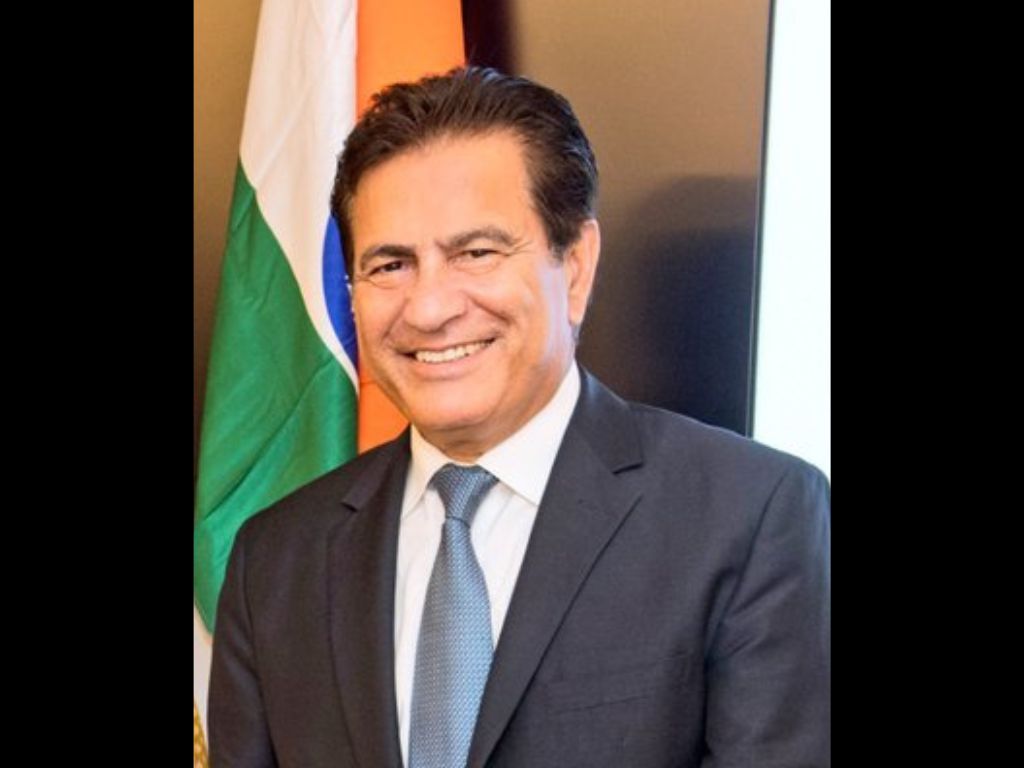- Thursday, April 03, 2025
The CEO of the US-India Strategic Partnership Forum said while the US-India relationship continues positively, the focus on Quad, I2U2 and IMAC will remain under the new government.

By: Shubham Ghosh
THE American corporate sector expects the economic reforms to continue in the third term of prime minister Narendra Modi despite his return to office with a slightly lower majority, the head of a top India-centric US business advocacy group said.
Modi is poised to form the government for a third consecutive term with the BJP-led National Democratic Alliance (NDA) getting a majority in the Lok Sabha or Lower House of the Indian parliament, notwithstanding disappointing results in three Hindi heartland states after a bitterly fought election that was projected as a referendum on his popularity.
The Election Commission of India has declared results for 542 of the 543 Lok Sabha constituencies, with the BJP winning 240 seats and the Indian National Congress 99.
“I think the mood is that the prime minister is going to come back with a slightly lower majority but, with a coalition, and the agenda of reform continues, the US-India relationship continues positively, the focus on Quad, I2U2, IMAC will continue,” Mukesh Aghi, president and CEO of US-India Strategic Partnership Forum (USISPF) told the Press Trust of India in an interview on Tuesday (4), the day the results were declared.
Read: India’s close election results will promote reforms, fees chief economic adviser
“I don’t think there’s any change as far as the (India-US) relationship goes. I think they (Biden administration) were expecting Prime Minister Modi to come back and the meetings between the two countries continue,” he added.
Aghi also said he doesn’t think that the impact of elections will derail the momentum of corporate investment into India.
“Corporates are looking at two aspects. One is how do you derisk the supply chain from China? And how do you basically leverage the market opportunity of India itself? So, I think those two don’t have any impact on the election results. So they will continue,” Aghi said.
Read: US-India business body congratulates Modi on election victory
“The Indian economy will continue to grow. Last quarter, it grew almost 8 per cent. It’s a USD 4 trillion economy. It will become a USD 5 trillion economy by 2027. I think the momentum continues by the corporate America into India,” he said. The election result, he said, is unlikely to have an impact on India-US relationship.
“Geopolitically, both countries are aligned. When you look at the aggressive assertive posture of China, that has not abated. So both countries have to work much, much closer,” Aghi said.
“In fact, I would see the momentum picking up between the two countries on the issue of Quad because I think Quad so far has been on joint patrols and defence alignment. Now I see the Quad moving more and more into economic security between the four countries, looking at partnership in the critical technology areas itself. I don’t think anything will slow down as far as the current, after the current election,” he said.
The Quadrilateral Security Dialogue, commonly known as the Quad, is a strategic security dialogue between Australia, India, Japan and the US that is maintained by talks between member countries. The elections and the results, he said, also enhance Modi’s position, given many people were talking about authoritarianism in India.
“They’re talking about rights of minorities and democracy. Democracy just basically voted and marginalised the BJP votebank itself. It sends a message that you don’t have a prime minister who is authoritarian, as the media was talking about. You don’t have a prime minister who is focused on trying to reduce the rights of individuals,” he said.
“So I don’t I don’t think it marginalises the image. In fact, it enhances the image when you look at it from a global perspective … More important is for the US also to learn that democracy functions very well in India. The transition happens very smoothly itself where we’re seeing challenges here from a transition perspective,” Aghi said.
The BJP won 240 seats, falling short of the 272 majority mark and needing the support of allies in the party-led NDA for government formation, a far cry from the 303 and 282 seats it had won in 2019 and 2014, respectively, to have a majority on its own.
With support from BJP’s key allies N Chandrababu Naidu’s Telugu Desam Party (TDP) and Nitish Kumar’s JD(U), which won 16 and 12 seats in Andhra Pradesh and Bihar, respectively, and other alliance partners, the NDA crossed the halfway mark and bagged around 290 seats in the 543-member Lok Sabha.
(With PTI inputs)